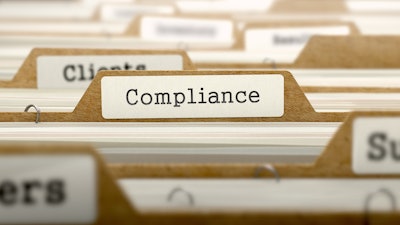
Governments around the world are rapidly mandating real-time tax reporting, forcing businesses to rethink how they manage compliance. What’s more, 82% of companies believe they are more exposed to tax-related compliance risk than five years ago, while 90% expect compliance costs to continue rising as governments abandon traditional declarative reporting in favor of real-time data collection, according to Sovos’ 2025 State of Tax Compliance Report.
"There's no such thing as after-the-fact reporting anymore," says Chris Lynch, chief marketing officer at Sovos. "Governments are embedding themselves directly into business systems, from accounts receivable and accounts payable to logistics and general ledgers. This new level of visibility changes how every organization must approach compliance. I’m really excited about the launch of our annual State of Tax Compliance report, which will deliver insights into regional and country-specific trends for finance and tax professionals."
Key takeaways:
● United States: With more than 12,999 jurisdictions and 643 sales tax rate changes in 2024, the United States remains the most fragmented tax environment in the world.
● EMEA: The report details which countries lead in the frequency of VAT rate changes and which industries face the highest levels of VAT complexity. It also identifies the four most common reasons e-invoices are rejected and the top VAT penalties issued by EU tax authorities.
● Latin America: As the global leader in e-invoicing maturity, Latin America now requires real-time reporting for 100% of VAT transactions. Brazil, in particular, stands out for its uniquely complex system where every business must use automated processes and penalties for unpaid taxes can reach up to 225%.
● The five biggest sources of sales tax audit exposure are digital services, energy and utilities, hospitality and tourism, pharmaceuticals and transportation and logistics.
● 95% say ensuring accurate real-time data reporting is critical.
● 94% are investing in technology to automate tax and compliance processes.
● 91% prioritize lowering or maintaining compliance costs.
● 86% are focused on preparing for future e-invoicing mandates.
● 76% report positive ROI on centralized indirect tax platforms.














![Pros To Know 2026 [color]](https://img.sdcexec.com/mindful/acbm/workspaces/default/uploads/2025/08/prostoknow-2026-color.mduFvhpgMk.png?ar=16%3A9&auto=format%2Ccompress&bg=fff&fill-color=fff&fit=fill&h=135&q=70&w=240)


